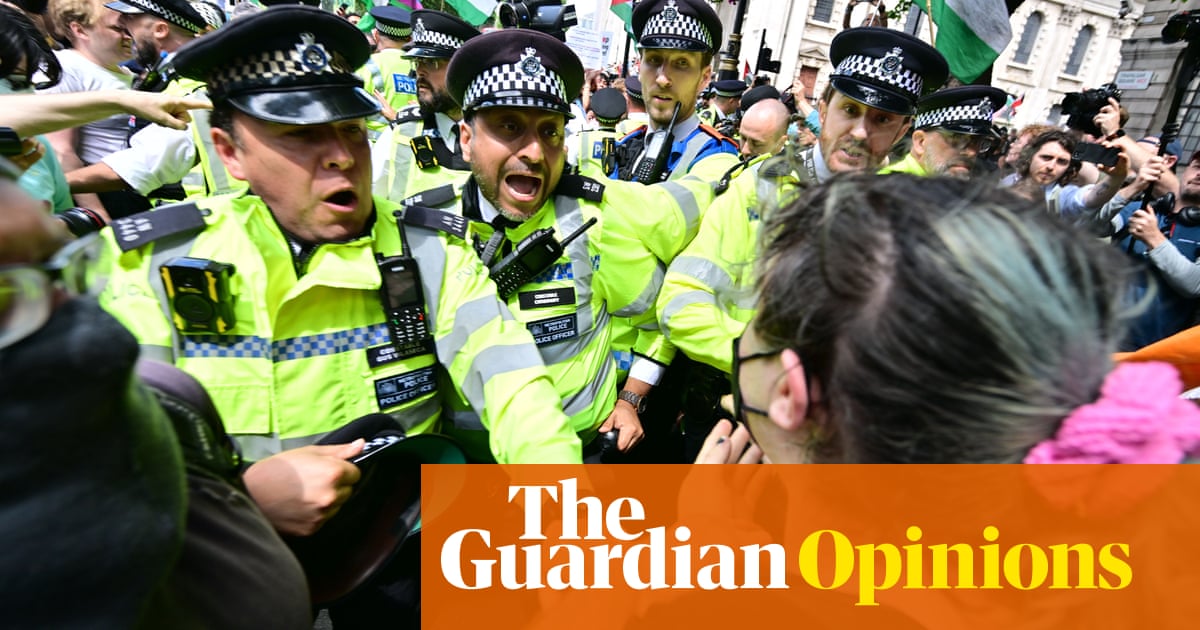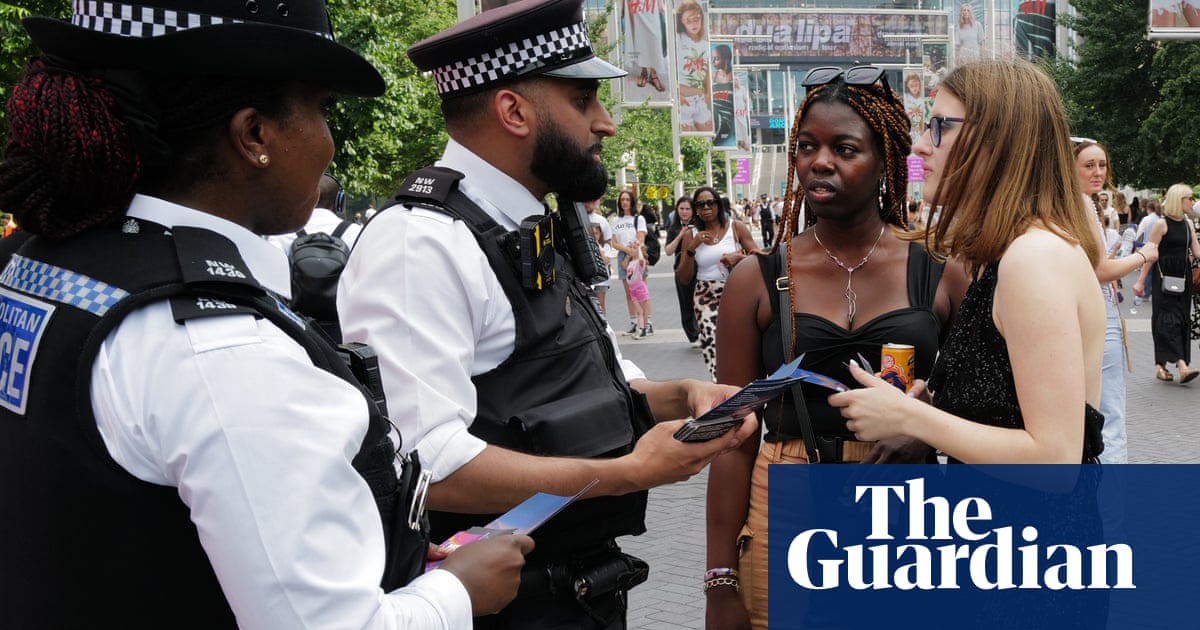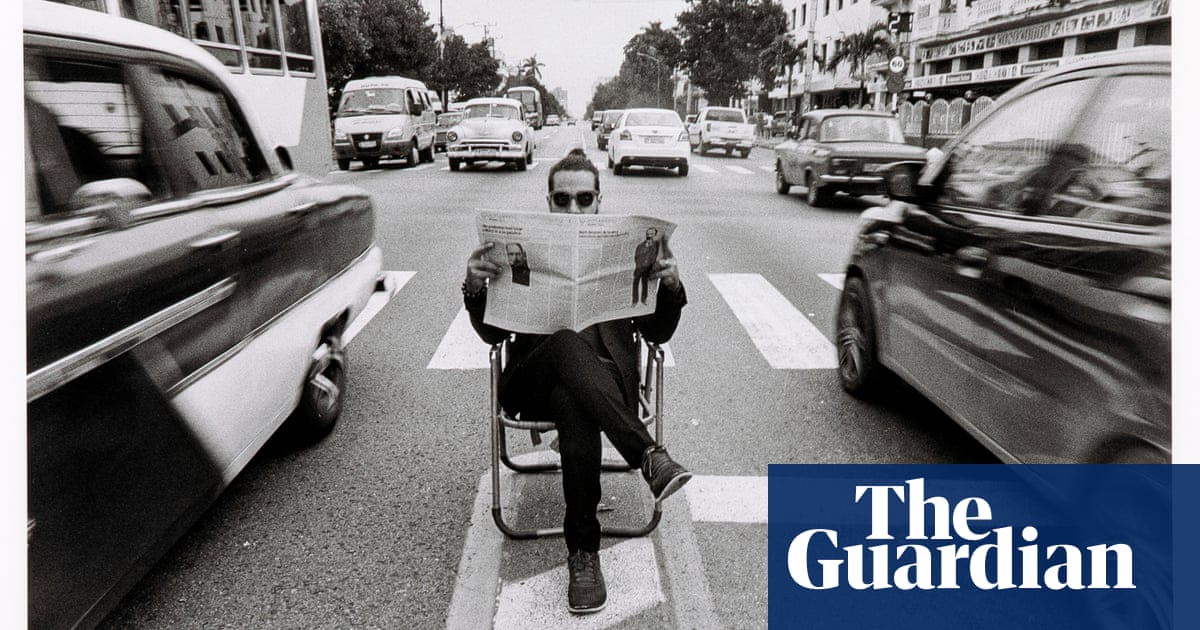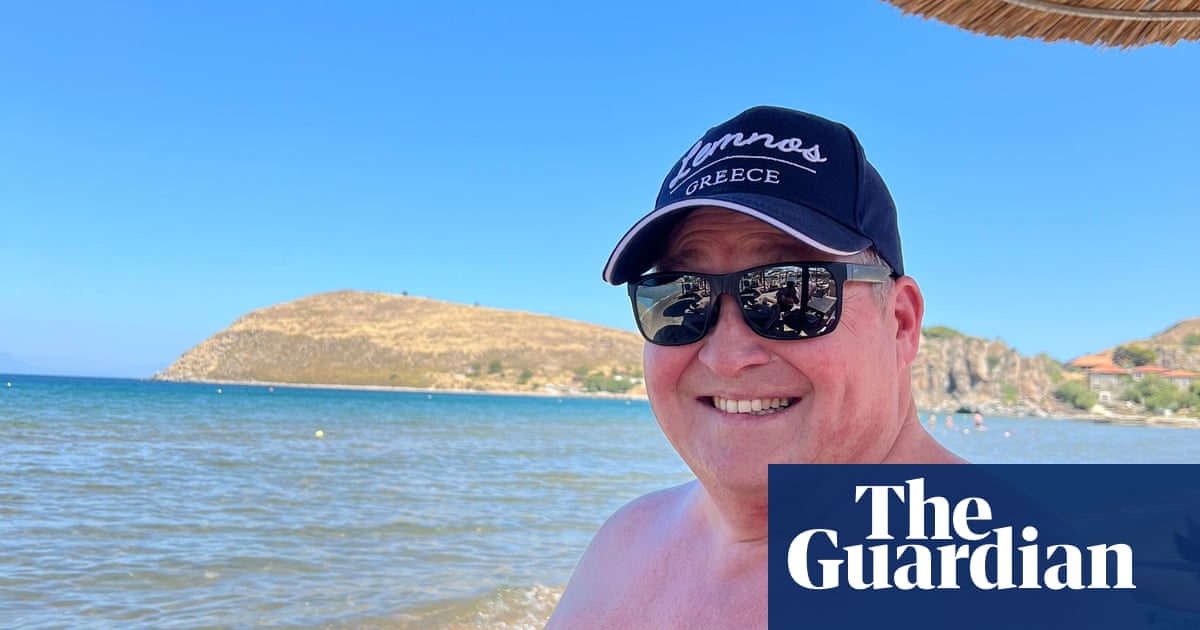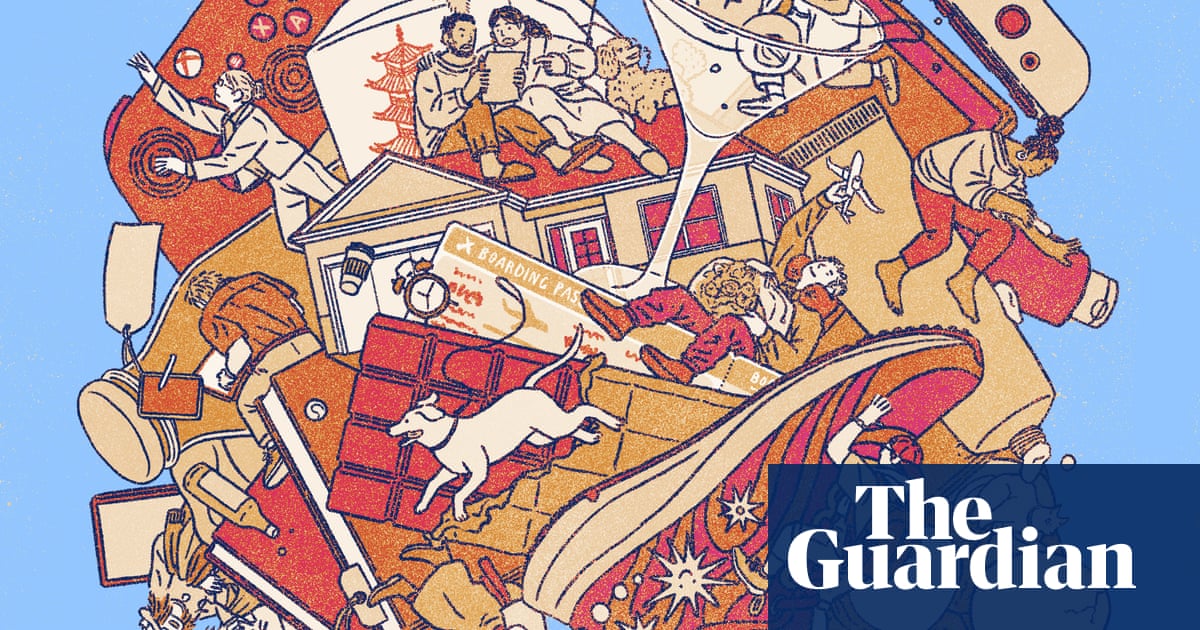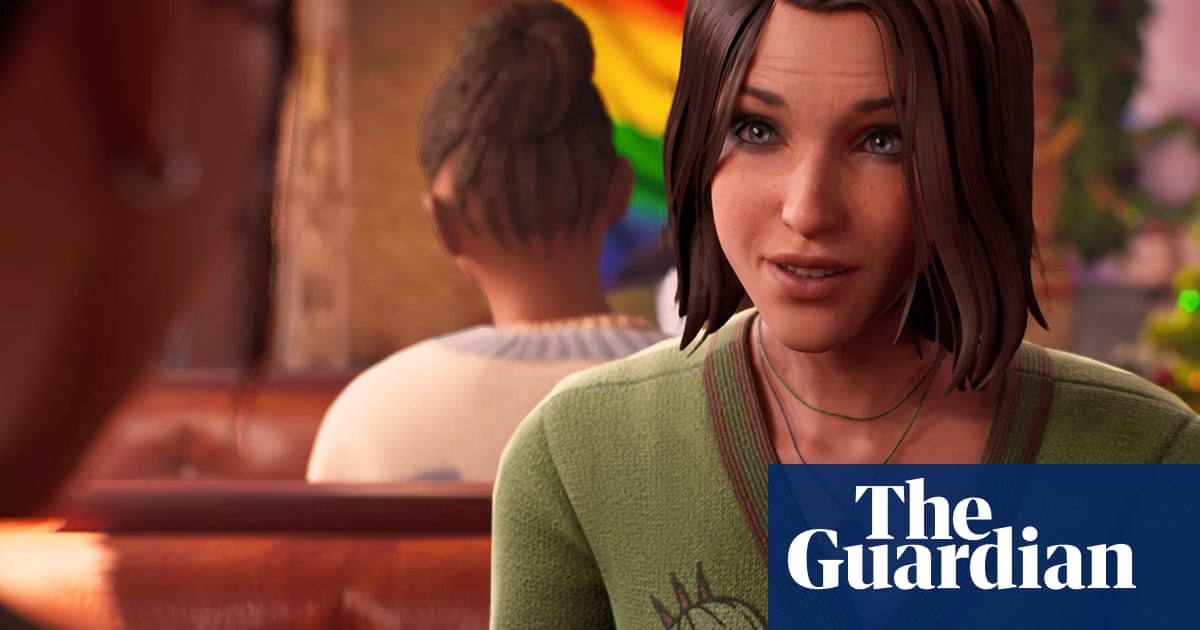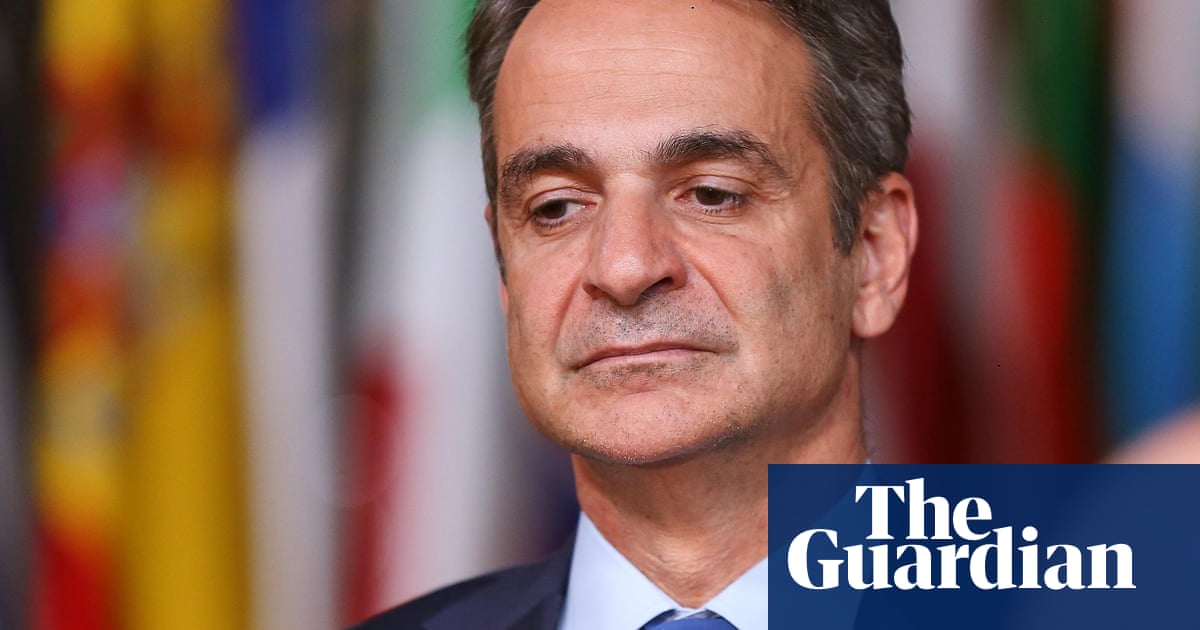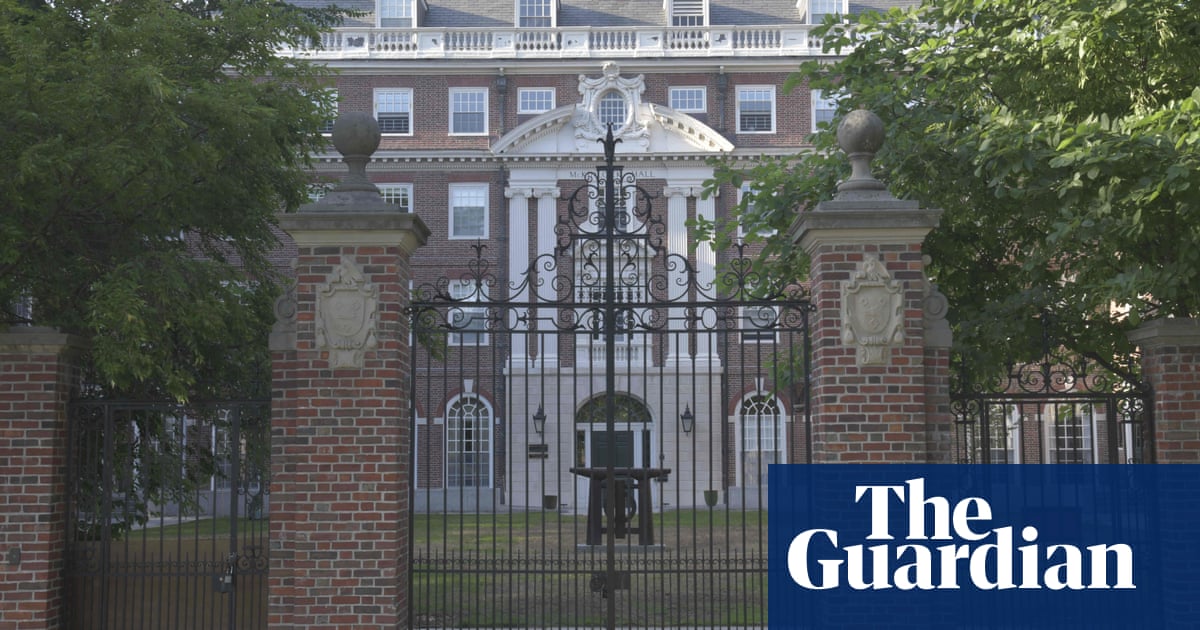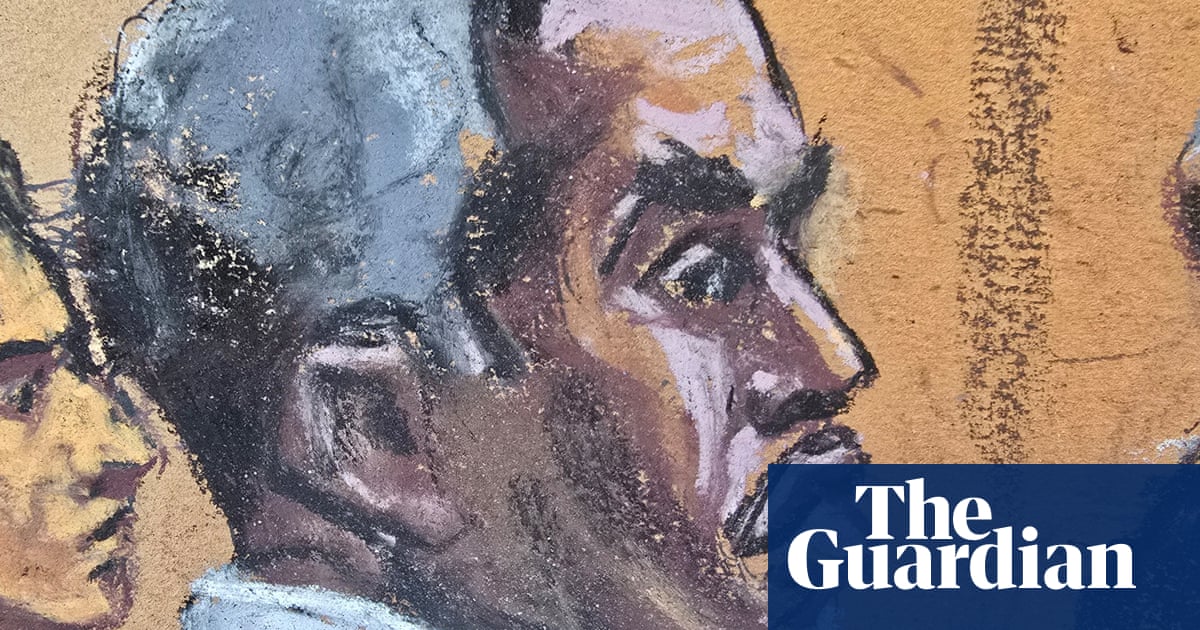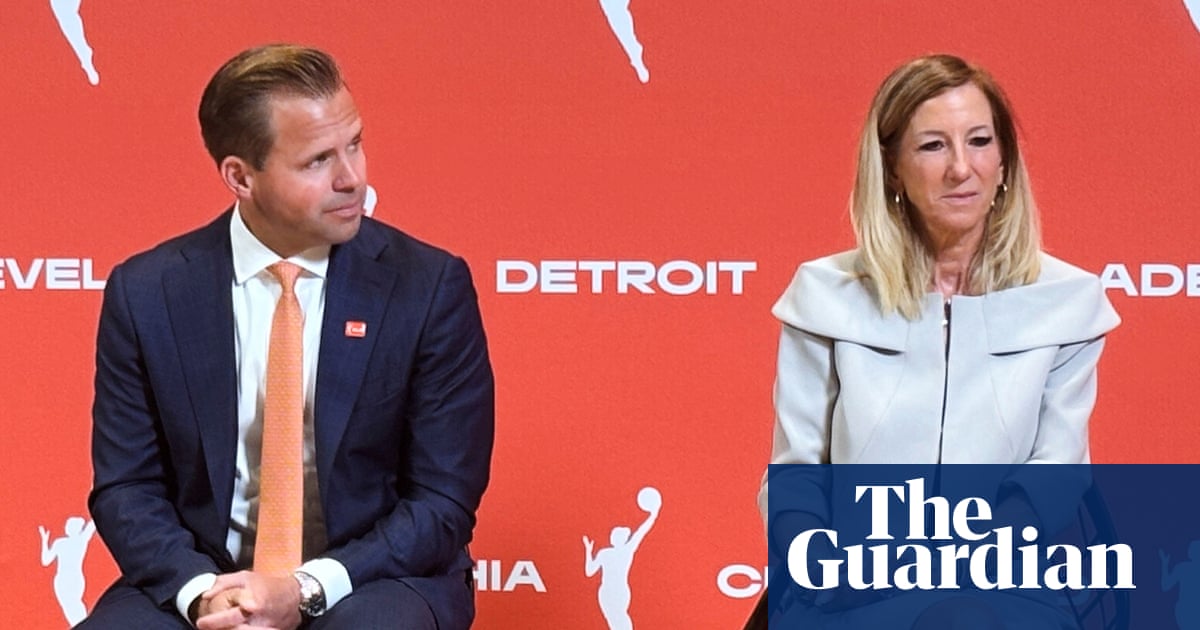On the final day of Glastonbury, the Libertines are due on the Pyramid stage for an afternoon show. But first, their co-frontmen, Pete Doherty and Carl Barât, make a stop by the Astrolabe stage for the last of Guardian Live’s in-conversations at this year’s festival. “They are the greatest British rock band of the last 25 years,” says Guardian critic and today’s host, Miranda Sawyer. And Doherty and Barât are two of the most notorious hell-raisers in indie-rock. But this is a changed band, perhaps, who stop for a photograph with Mr Tumble before they walk onstage.
They kick off the talk with fond memories of Glastonbury, a place that has long been “part of the mythology of the band,” says Doherty. For him, it was running into his sister, AmyJo, having not seen her in three years. “I heard this couple fighting in the mud.” But then he realised: “I know that voice. It was AmyJo. She was having a full on barney with her boyfriend at the time. We had a massive, warm embrace and a little cry.”
Barât’s Glasto experience was emotional in a different way. “It was a bit of a rite of passage when I was kid – to go over the fence. When I finally got through, the festival opened up before me and it was so exciting. I didn’t have any money, so I got food in the Hare Krishna tent and I slept in a Christian Aid tent. I woke up at four in the morning and I heard this rattling – I was getting sprayed. There was some fella pissing on my blanket.”
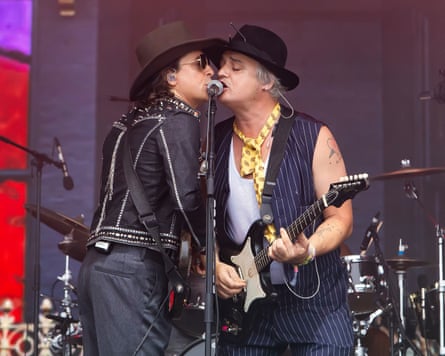
Sawyer notes the similarities between the spirit of Glastonbury and the thrust of the Libertines’ songs about Albion and “Merrie Old England”. The pair agree. “It’s definitely still medieval,” says Doherty, perhaps thinking of the Stone Circle at 6am. “There’s people with chicken powered bicycles and people who are living in the rhythms of the stars and the planet, or trying to make a stand in this time where it’s probably more difficult than ever. Or trying to be in touch with the land or what’s left of it.”
An audience with Pete Doherty and Carl Barât answering reader’s questions is what it must be like to be on their tour bus. Or a fly on the wall when they shared a flat together in Camden in the mid-2000s. Their wisecracking banter has a tendency to veer off into the surreal, or the profound, with the occasional lighthearted jibe. Sawyer asks about being in a lineage of songwriting partnerships with a push-pull tension, one they mined their relationship for their songs like Can’t Stand Me Now. At one point, the pair even had security guards to protect them from each other. “But we didn’t really discuss it well,” says Doherty to his bandmate. “You’re always good for the arguments but less good at discussing and understanding the love affair.”
Their last album, however, All Quiet on the Eastern Esplanade, was about a different relationship – with Margate in Kent. “We were running a hotel,” says Barât. “And we got so wrapped up in it. I woke up one day and realised I was like Basil Fawlty. I was so stressed all the time.” They’ve since turned it into a recording studio, where they made the album and give studio time to up-and-coming bands “so they can afford to go and do demos. It’s community building.”
It’s time for readers’ questions, which range from the future of the music industry to – one for the heads – Doherty’s favourite cheese. Asked what their favourite support act of the past 20-odd years has been, they chorus “Chas and Dave”, or the time they went on after a Guns N’ Roses tribute act called Guns N’ Noses. “The guitarist was called Slosh,” laughs Barât. Another reader wanted to know if Doherty’s opinion on Oasis had changed since he notoriously appeared on MTV in 1997, saying: “I subscribe to the Umberto Eco view that Noel Gallagaher’s a poet and Liam’s a town crier.” “Yeah, I think that still works in a way,” he replies.
Next up, Doherty evangelises about his favourite episode of BBC radio comedy Hancock’s Half Hour broadcast: “The Poetry Society [episode] is my go-to. When we used to share a flat, I used to always put that one on for you,” he says to Barât. “He fancied himself as a bit of a poet and he’s in with all these bohemians that hang around.” That sounds familiar. But the musician is also up on contemporary culture. In response to a reader question about new books, he says: “There’s a novel called England Is Mine about a kid who gets turned to online extremism by a young English writer called Nicolas Padamsee. I ran into him at random yesterday; it’s a beautiful first novel. It inspired me and made me want to get back to myself.”
after newsletter promotion
Talk turns to nostalgia for the mid-2000s, when the Libertines swaggered on to the London scene with 2002 album Up the Bracket, produced by Mick Jones of the Clash, and combusted in a blaze of scandal and infamy. A reader asked: what is the one thing you would both change if you had a time machine and could travel back to the early 2000s? “My first thought is to try and get involved in some historical events like, I don’t know, contact the New York police on the morning of 9/11 or something,” says Doherty, fancying himself as a hero. “That’s not funny, is it? But something like that, I don’t know. Or just place some bets on certain horses and cup finals, proper Back to the Future vibes. Nothing really in my own life, because I wouldn’t want to tamper with the ….” He pauses. “There’s a few things, maybe. Yeah, so much.”
“No, I wouldn’t change anything,” chimes Barât. “Apart from averting catastrophes.” If the Libertines could have avoided implosion, would they have achieved global rock dominance? “I mean, I don’t think we know what to do with dominance,” says Barât.
The talk concludes with what there is to look forward to about the Libertines’ live show on the Pyramid. Do they have anything special up their sleeve for the afternoon Glastonbury crowd? “We’re gonna have the shipping forecast as the intro music, that’s gonna be a lovely moment,” says Doherty. “Other than that, it’s the same old shit.”

 10 hours ago
5
10 hours ago
5



